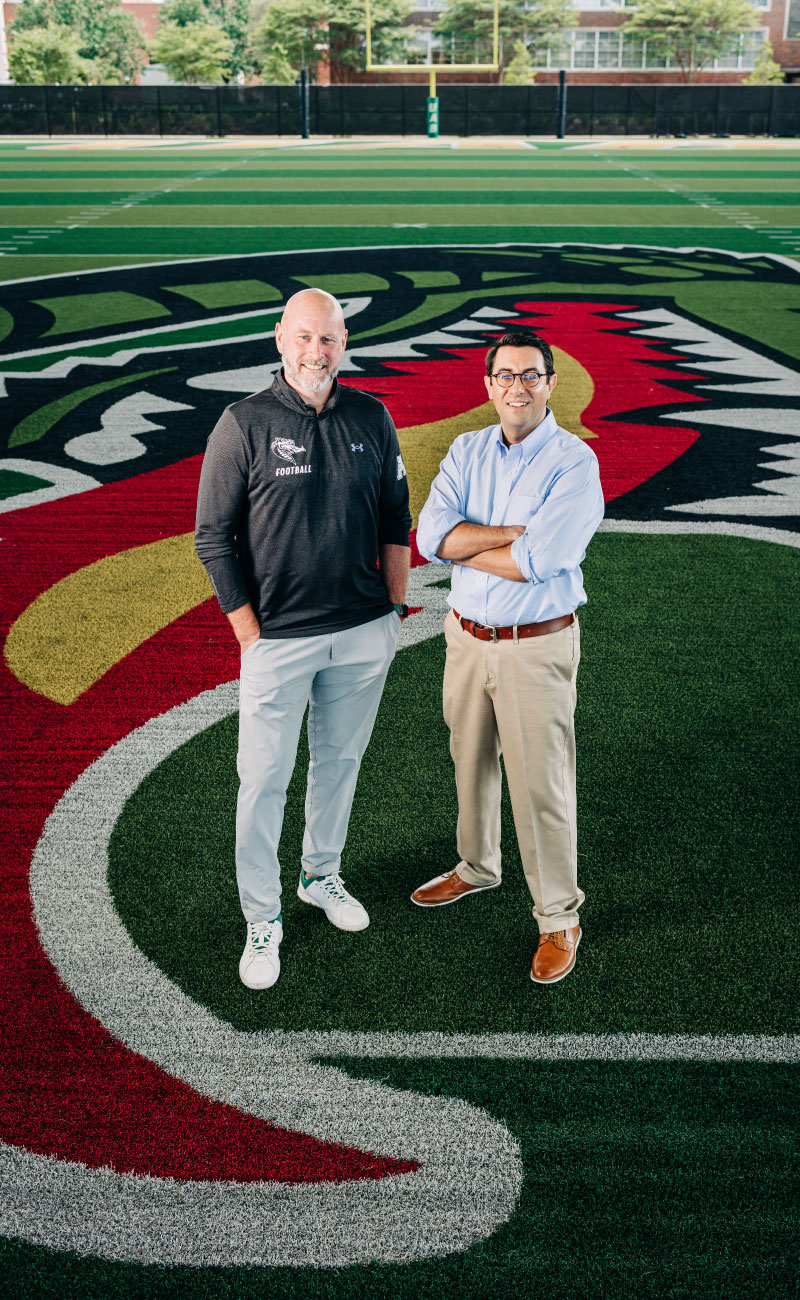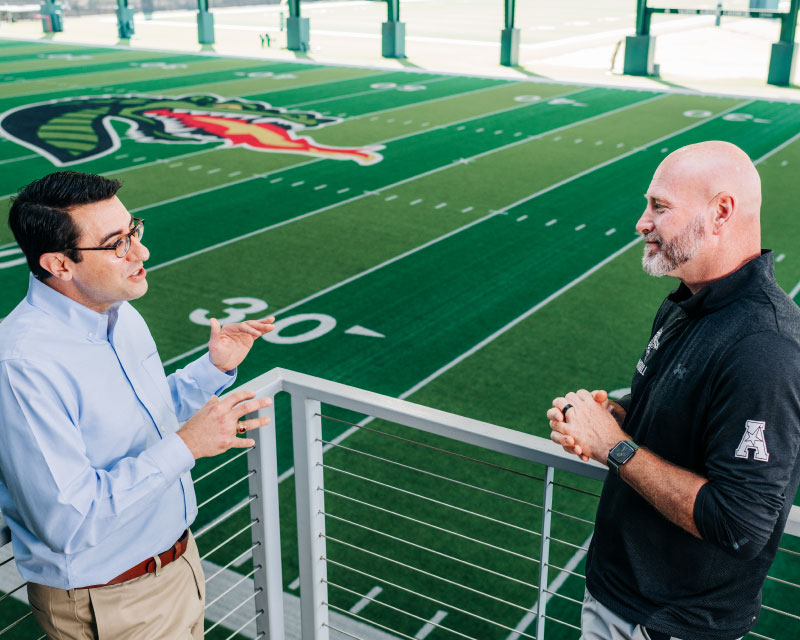 Left to right: Trent Dilfer and Matthew Macaluso, D.O.In football, there are phrases that are as familiar to a player’s ears as the sound of a coach’s whistle: “Suck it up … Fight through it … Shake it off.” Tough words for a tough sport. But even as coaches push players to test their physical limits, they understand that injuries require time and resources to heal.
Left to right: Trent Dilfer and Matthew Macaluso, D.O.In football, there are phrases that are as familiar to a player’s ears as the sound of a coach’s whistle: “Suck it up … Fight through it … Shake it off.” Tough words for a tough sport. But even as coaches push players to test their physical limits, they understand that injuries require time and resources to heal.
The problem is coaches can’t recognize mental health issues nearly as easily as they can a torn ACL or dislocated shoulder. That’s why UAB head football coach Trent Dilfer is working with the UAB Department of Psychiatry and Behavioral Neurobiology to provide players with mental health information and advice.
“Mental toughness and physical toughness sometimes get blended together, but they’re two separate things,” said Dilfer, a former Super Bowl-winning quarterback who spent 14 years in the NFL. “As coaches, we’re not experts in mental health or depression, so any time you can partner with experts to help provide resources, you’re doing your players a service. And our primary focus is the players and their holistic development.”
The partnership grew from a chance meeting at a UAB basketball game between Dilfer and Matthew Macaluso, D.O., the Bee McWane Reid Professor and vice chair for Clinical Affairs in the UAB Department of Psychiatry and Behavioral Neurobiology. Dilfer spent several minutes talking with Macaluso’s son and even let him try on Dilfer’s Super Bowl ring.
“I wrote Coach a thank-you note for making such a special memory with my son, and said to let me know if there was anything I could do for him or the team,” Macaluso said. “That led to a series of meetings where we talked about how there are many players who are not prepared for the struggles they’ll have in college, on the field, or in life outside of football. I asked how our department could help promote mental wellness and be a resource for players with mental health needs.”
Currently, Macaluso and Karen Marks, a licensed clinical social worker, visit the UAB football complex once a month to lead educational sessions on mental health with the team, and discuss what a person should do if they need assistance. He said the meetings help the players realize that openly dealing with mental health issues is not a sign of weakness.
“I think the best part of the educational sessions is when we open the dialogue for participation,” said Marks. “Often one question prompts another question, or more often, another story. Other hands shoot up, or players will nod in agreement. Engaging, participating in the dialogue, and sharing their experiences in a vulnerable way is visibly team-building.”
 “There is still a stigma in our society in general, and especially among young athletes, where many people don’t understand that mental disorders are biological in nature just like any other health problem, such as high blood pressure,” Macaluso said. “We’ve had some very deep conversations with groups of players about barriers that are holding them back from success both on and off the field.”
“There is still a stigma in our society in general, and especially among young athletes, where many people don’t understand that mental disorders are biological in nature just like any other health problem, such as high blood pressure,” Macaluso said. “We’ve had some very deep conversations with groups of players about barriers that are holding them back from success both on and off the field.”
Dilfer has long recognized the need for a strong support system to help players on and off the field, dating to the emotional struggles he endured following the death of his 5-year-old son in 2003 while Dilfer was in the NFL.
“One of the big advantages of doing this at UAB is the resources available within the medical center that supplement the great services offered by traditional student counseling services,” Dilfer said. “You have experts in their field who want to partner with you all over campus, and Dr. Macaluso and his team have stretched to help us.
“On many occasions, Coach has reached out to me looking for resources for a player or to pick my brain about the best way to engage with a particular player as an individual,” Macaluso said.
“He’s committed to making these young men into fine, healthy human beings in addition to top athletes. He’s someone who truly cares about his players as people.”